When an IVF cycle is started, it is essential to have regularly monitoring by ultrasound scan in order to check the ovarian stimulation is developing properly, and the ovaries are responding adequately. If not, problems may occur.
IVF may be cancelled due to either a poor or excessive response of the ovary to fertility drugs. In these cases, there is no alternative but to cancel the cycle, irrespective of whether it is a classical IVF or ICSI cycle.
The IVF cycle could also be cancelled in the final step of embryo transfer, due to several reasons. In any case, there are various things to do if your IVF cycle gets cancelled.
Provided below is an index with the 7 points we are going to expand on in this article.
- 1.
- 1.1.
- 1.2.
- 1.3.
- 2.
- 3.
- 4.
- 4.1.
- 4.2.
- 4.3.
- 4.4.
- 4.5.
- 4.6.
- 4.7.
- 5.
- 6.
- 7.
IVF cancellation reasons
A complete IVF cycle encompasses the following phases:
- Ovarian stimulation
- Egg retrieval
- Embryo culture and development
- Embryo transfer
Each one of these phases is crucial to achieve IVF success. For this reason any problem or abnormality that may arise in these steps can lead to cancellation of the cycle. Depending on the phase, a cycle can be cancelled totally, if there are no eggs or embryos, or partially, if there are eggs and embryos to freeze for future cycles.
If you need to undergo IVF to become a mother, we recommend that you generate your Fertility Report now. In 3 simple steps, it will show you a list of clinics that fit your preferences and meet our strict quality criteria. Moreover, you will receive a report via email with useful tips to visit a fertility clinic for the first time.
When a woman or couple find themselves in any of these scenarios, they ask themselves questions such as Why has my IVF cycle been cancelled? What would be the risks if it were not cancelled? When should an IVF cycle get cancelled?, etc.
What follows is a list of factors that can affect the normal development of an IVF cycle, leaving the specialist no choice but to delay it:
Poor response to ovarian stimulation
A key phase in every IVF cycle is the ovarian stimulation with hormonal medication: These drugs make the ovaries to produce multiple ovarian follicles at the same time.
In this phase, there is the chance that the ovary has a poor response to fertility drugs. In such case, your doctor may consider the possibility of cancelling the cycle if:
- The number of follicles is insufficient
- Your hormonal levels are too low or altered, indicating poor egg quality
- Early spontaneous ovulation and loss of mature eggs
If no mature egg develops or if they degenerate because ovulation occurs earlier than expected, the cycle would be cancelled. The process can be started again in a new cycle, with a adapted stimulation and medication protocol.
It should be noted that, in cases of IVF cancellation due to early ovulation, you should avoid intercourse or at least use a birth control method, as the risk of multiple pregnancy is considerably high.
When the number of eggs collected is too low due to low response o poor ovarian reserve, it is your decision whether or not to continue the cycle or cancel it. Although there are no associated health risks as such, the success rates are very low.
Accumulation of oocytes during various cycles is another option. This method allows multiple oocytes to be fertilized all at the same time to create the embryos when the number is considered acceptable.
For more information on this topic and other ways to increase the probability of success with poor ovarian resposnse, click here: Poor Responders in IVF Cycles – Management & Best Protocols.
Risk of Ovarian Hyperstimulation
IVF cycles can also be cancelled due to an excessive response from the ovaries, to the horomonal drugs used in stimlation. Being a high responder can, in the more serious cases, lead to Ovarian Hyperstimulation syndrome, OHSS.
The extra estrogens as a result of overstimulation can cause the ovaries to grow excessively. Moreover, it can cause the follicular fluid to leak from the ovaries into the abdominal cavity, which can cause more serious side effects.
Last but not least, OHSS increases the risk for the blood vessels to become “leaky”. This can compromise the renal and respiratory systems, cause liver damage, and alter the production of blood. In short, OHSS can become a life-threatening side effect in the worst cases.
A woman is considered a high responder to IVF meds when 15 or more eggs are retrieved or if the levels of estradiol in blood are above 3,000 pg/ml on the day of ovulation induction.
In cases of IVF cancellation due to overstimulation with risk of OHSS, there exist two possible solutions to avoid further complications:
- Cancellation before egg retrieval
- The cycle is stopped during the stimulation and hormone administration phases. At this point, it is crucial that you avoid unprotected sexual intercourse, as the risk of multiple births and late OHSS is high.
- Embryo cryopreservation
- In this case, the specialist carries the egg retrieval procedure, but the eggs collected will be fertilized and frozen for being transferred in future cycles. If the cycle were continued and pregnancy occurred, the increase of hCG levels could cause the woman to develop OHSS.
It should be noted that, if you opt for the latter strategy, your specialist will freeze embryos and not eggs. By doing this they obtain high-quality embryos; embryos that have been able to survive the freezing-thawing process.
Failure to obtain sperm
Another problem that could occur at the time of follicular puncture and fertilization of the eggs could be related to the male, who needs to provide the sperm.
Once the eggs have been retrieved from the IVF patient, they should be fertilized within 4 hours. After this timeframe, they will be too "old" to be fertilized.
In short, after egg retrieval, having the sperm specimen from the partner or donor ready for fertilization is crucial.
Potential problems that may occur at this stage include:
- Performance anxiety or inability to ejaculate via masturbation
- Semen without sperm in patients with severe oligospermia
- Decreased sperm quality or presence of dead sperm post-thaw
If there is any suspicion that any of these could happen, it is avisable to have frozen several semen samples beforehand. As such, if fresh semen is not available, it will be possible to resort to cryopreservation.
Cancelled embryo transfer
Occasionlly, even though the previous steps of IVF have been successful, the embryo transfer may be cancelled due to other reasons.
The following are the main causes for IVF cancellation at the embryo transfer stage:
- No embryos available for transfer
- Due to failure of eggs to fertilize or embryonic arrest during embryo culture, especially in cases of blastocyst culture.
- Non-receptive endometrium
- If the embryo or embryos are transferred in a moment other than the implantation window, the may not be able to attach to the lining of the uterus leading to IVF implantation failure.
Implantation failure occurs rarely and can be related to male infertility, female infertility, or a combination of both. If it occurs, the specialist will look for the cause prior to starting a new IVF cycle.
As for embryonic arrest, it is most likely to be due to genetic abnormalities that prevent them from developing. Embryonic arrest may also occur in cases of long culture to blastocyst stage. The formation of a blastocyst embryo is critical and not all embryos are able to complete it.
If no embryos make it to the transfer due date, there would be no alternative but to cancel the cycle and start a new one.
Interview with Dr Guillermo Quea
In an interview with Guillermo Quea, medical codirector and OB /GYN at the Pronatal clinic in Madrid, he told us about the possible causes of IVF cancellation:
A low response to ovarian stimulation is not a reason for cancellation because nowadays the vitrification of embryos allows us to accummlate the embryos for future use.
If we can´t obtain the sperm on the same day of the follicular puncture, we can freeze the eggs for fertilization in the future.
Embryo transfer is usually cancelled due to a lack of embryos, due to lack of fertilization or arrested development. Another cause is that the endometrium is not in the ideal condition for implantation to occur. Transfer can be deferred in the case of altered progesterone levels, the endometrium beginning to shed and the resulting bleeding starting to occur.
The receptivity of the endometrium is measured in the days before the transfer, the results of this study may mean an adaptation in the administration of progesterone to do the transfer at the correct moment.
FAQs from users
At what step of IVF can the cycle be cancelled?
The IVF cycle can be cancelled in any of its phases, either during ovarian stimulation, after ovarian puncture, during fertilization, during embryo culture or before embryo transfer.
Read more
Why can an embryo transfer be cancelled?
The motives for the cancellation of embryos transfer can be as follows:
- No viable embryo(s) developed from failed fertilization or arrested embryo growth
- Fresh embryo(s) are all chromosomally and/or genetically being tested resulting in freezing all embryos until the testing results
- Embryo(s) were tested and all were found to be chromosomally or genetically abnormal
- Endometrial fluid is present
- The patient is at risk for or demonstrates signs of ovarian hyperstimulation síndrome (OHSS)
- The embryo(s) are unable to be successfully transferred into the uterus (very rare)
Why can embryonic development be blocked?
The culture conditions, or the quality of the sperm or egg cells can result in the embryo not continuing its development towards becoming a blastocyst.
The possible causes that cause the embryo to block its development are:
- Fragmentation of double-stranded DNA that the egg is not able to repair, therefore, the embryo will not be able to activate its genome..
- Altered FISH will lead to an increase in aneuploid embryos.
- Poor oocyte quality, post-ripe eggs, eggs with endoplasmic reticulum or altered polar bodies may prevent the embryo from continuing its development.
- Genetic or chromosomal alterations present in the embryo that will make it unable to activate its genome.
Why is a frozen embryo transfer cancelled?
There are two main reasons for this. First of all, it is possible that the endometrial preparation does not go well and the adequate thickness is not achieved after weeks of hormonal medication. On the other hand, it can also happen that the vitrified embryos do not survive after thawing, although this is not usually the case. The survival rate of vitrified embryos is close to 99%.
Is it possible the embryo transfer gets cancelled in an ovodonation?
Although it is not normal, it is possible that there may be some complication that may cause the cycle to be cancelled, especially when the egg donation is fresh. This means that the donor and recipient must be synchronized so that the donor's eggs and the recipient's endometrium are in sync, which is a bit tricky. Donor eggs are usually vitrified until the recipient's endometrium is in optimal condition for transfer.
When will my period come after cancellation of an IVF cycle?
After cancelling an IVF, usually the cycle continues normally and the menstrual period will come at the time it should occur. This is as long as the IVF cancelled before reaching the puncture, to avoid the risk of hyperstimulation, because there has not been a correct fertilization or embryo development.
However, when the cycle is cancelled, there is the possibility of administering progesterone in such a way as to provoke a period by deprivation, so that the period will come on about 5 days after the suspension of progesterone.
Is it possible that an IVF cycle is cancelled due to cyst on ovary?
Yes, if a cyst on the ovaries is found, treatment may need to be delayed. Fortunately, cysts are typically benign and usually go away on their own. Once resolved, you may be able to start the IVF cycle after a short delay.
Recommended reading
As explained above, an IVF cycle has various phases and the average duration is about one month. For more details on each of these phases you can continue your reading here: The IVF Process Step by Step.
As in the case of IVF, women who undergo Intrauterine Insemination (IUI) cycles may experience certain issues that leave them no choice but to cancel or delay the treatment. Click here to read more: Complications of Intrauterine Insemination or IUI.
We make a great effort to provide you with the highest quality information.
🙏 Please share this article if you liked it. 💜💜 You help us continue!
References
Kasey A Reynolds, Kenan R Omurtag, Patricia T Jimenez, Julie S Rhee, Method G Tuuli, Emily S Jungheim. Cycle cancellation and pregnancy after luteal estradiol priming in women defined as poor responders: a systematic review and meta-analysis. Hum Reprod. 2013 Nov;28(11):2981-9. doi: 10.1093/humrep/det306. Epub 2013 Jul 25.
M J Pelinck, A Hoek, A H M Simons, M J Heineman. Efficacy of natural cycle IVF: a review of the literature. Hum Reprod Update. Mar-Apr 2002;8(2):129-39. doi: 10.1093/humupd/8.2.129.
M McIlveen, J D Skull, W L Ledger. Evaluation of the utility of multiple endocrine and ultrasound measures of ovarian reserve in the prediction of cycle cancellation in a high-risk IVF population. Hum Reprod. 2007 Mar;22(3):778-85. doi: 10.1093/humrep/del435. Epub 2006 Nov 17.
Tahereh Madani, Firouzeh Ghaffari, Kiandokht Kiani, Fatemeh Hosseini. Hysteroscopic polypectomy without cycle cancellation in IVF cycles. Reprod Biomed Online. 2009 Mar;18(3):412-5. doi: 10.1016/s1472-6483(10)60101-0.
Zehra Sema Özkan. Ovarian stimulation modalities in poor responders. Turk J Med Sci. 2019 Aug 8;49(4):959-962. doi: 10.3906/sag-1905-179.
FAQs from users: 'At what step of IVF can the cycle be cancelled?', 'Why can an embryo transfer be cancelled?', 'Why can embryonic development be blocked?', 'Why is a frozen embryo transfer cancelled?', 'How often are IVF cycles cancelled?', 'Is it possible the embryo transfer gets cancelled in an ovodonation?', 'When will my period come after cancellation of an IVF cycle?' and 'Is it possible that an IVF cycle is cancelled due to cyst on ovary?'.
Authors and contributors

More information about Michelle Lorraine Embleton
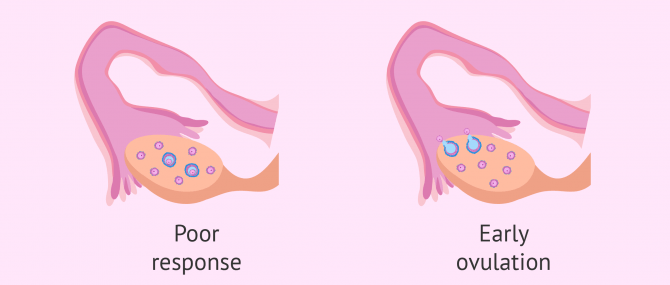
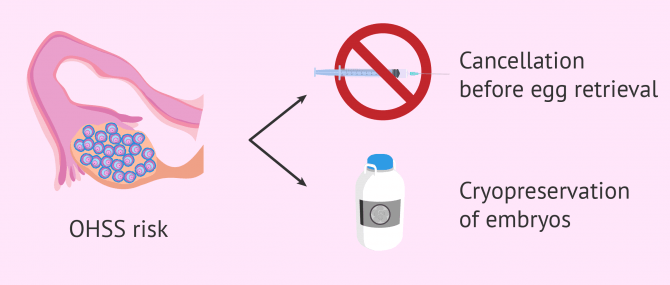
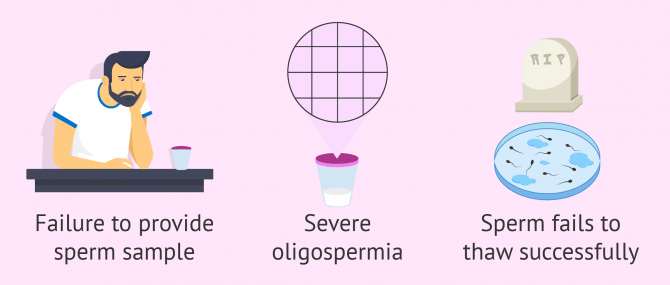
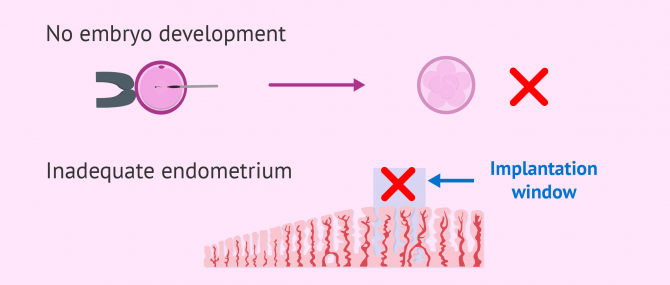
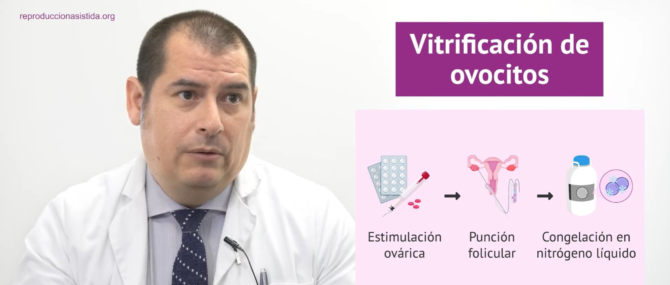





My daughter has had her IUI cancelled. Why could this be?
Hi GrandmaJosie
In an IUI treatment, the patient is given drugs to stimulate the development of one or two cells to maturatio, before the insemination occurs. It may be that your daughter has an an inappropriate response to the ovarian stimulation.
You can find out more about the steps of intrauterine insemination in our article: What is Artifical Insemination?
I hope this helps